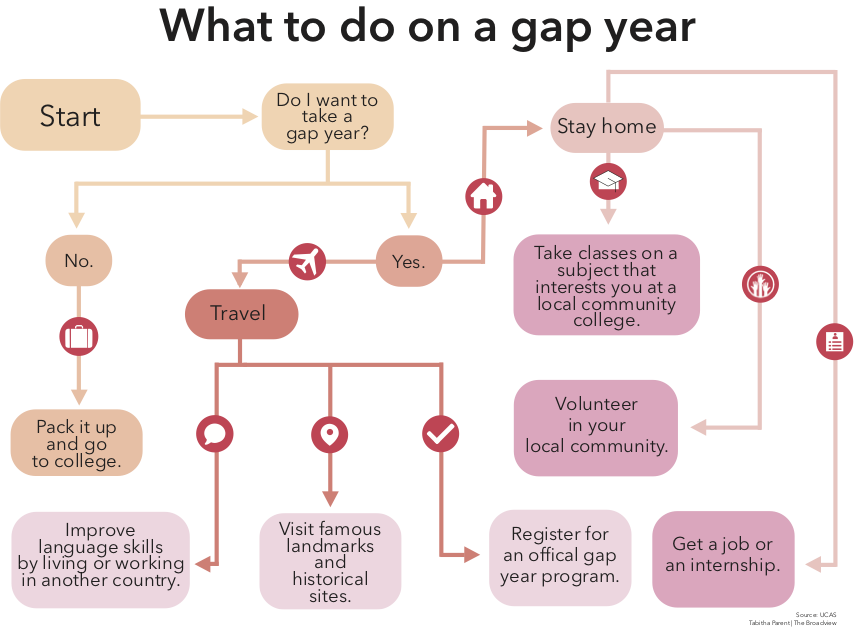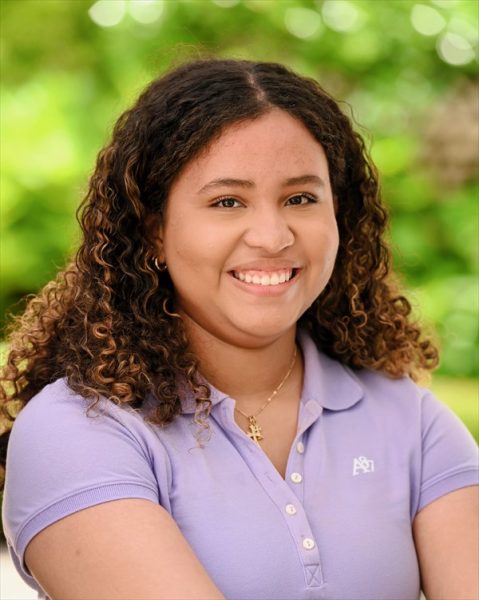A new side of college admissions
Virtual tours and the absence of required standardized testing shift applicants’ outlook
There are many options for students interested in gap years, from traveling to gaining work experience.
February 24, 2021
With the cancellation of college visits and the introduction of optional standardized testing, the Class of 2021 is finding new strategies for exploring colleges and gap-year programs after graduation.
Over 900 top-tier colleges and universities have de-emphasized the importance of test scores, some making standardized tests optional or even opting to be test blind, according to Forbes. This change has some students now applying to highly selective institutions that they may not have considered pre-pandemic.
“Colleges know that tests are just a one time thing,” college counselor Thomas Esponnette said. “The tests are just a very small piece of it.”
The pandemic prompted many college freshmen to take a deferral year, rather than to start college this past fall. Some members of the Class of 2021 may choose a similar path in order to explore non-academic and academic interests, according to Forbes.
“When the pandemic became a part of life, I felt even more sure that I wanted to take a gap year,” Arlena Jackson (’20), who chose to do her gap year in Israel exploring her Jewish heritage, said.
Some students are concerned that an increased number of applicants will lower their chances of acceptance, however, gap year applicants are around 4% up from— 2% pre-pandemic— so they should not have a significant impact on those accepted this year, according to Esponette.
The national average acceptance rate is roughly two-thirds of all applicants so there is room for everyone, according to the Concord Monitor. All indications suggest that this year’s deferrals will not have a noticeable impact on the high school Class of 2021.
Many colleges and universities chose to shift to virtual learning for the current academic year, so, many prospective students unable to visit in person some students have been struggling to figure out if a school they tour virtually would still be a fit when they get campus, according to senior Kate Baker.
“I did a few online tours, which I know isn’t the same, but it still gives you a perspective,” Baker said. “I think the most valuable college information comes from the counselors and just word of mouth.”










